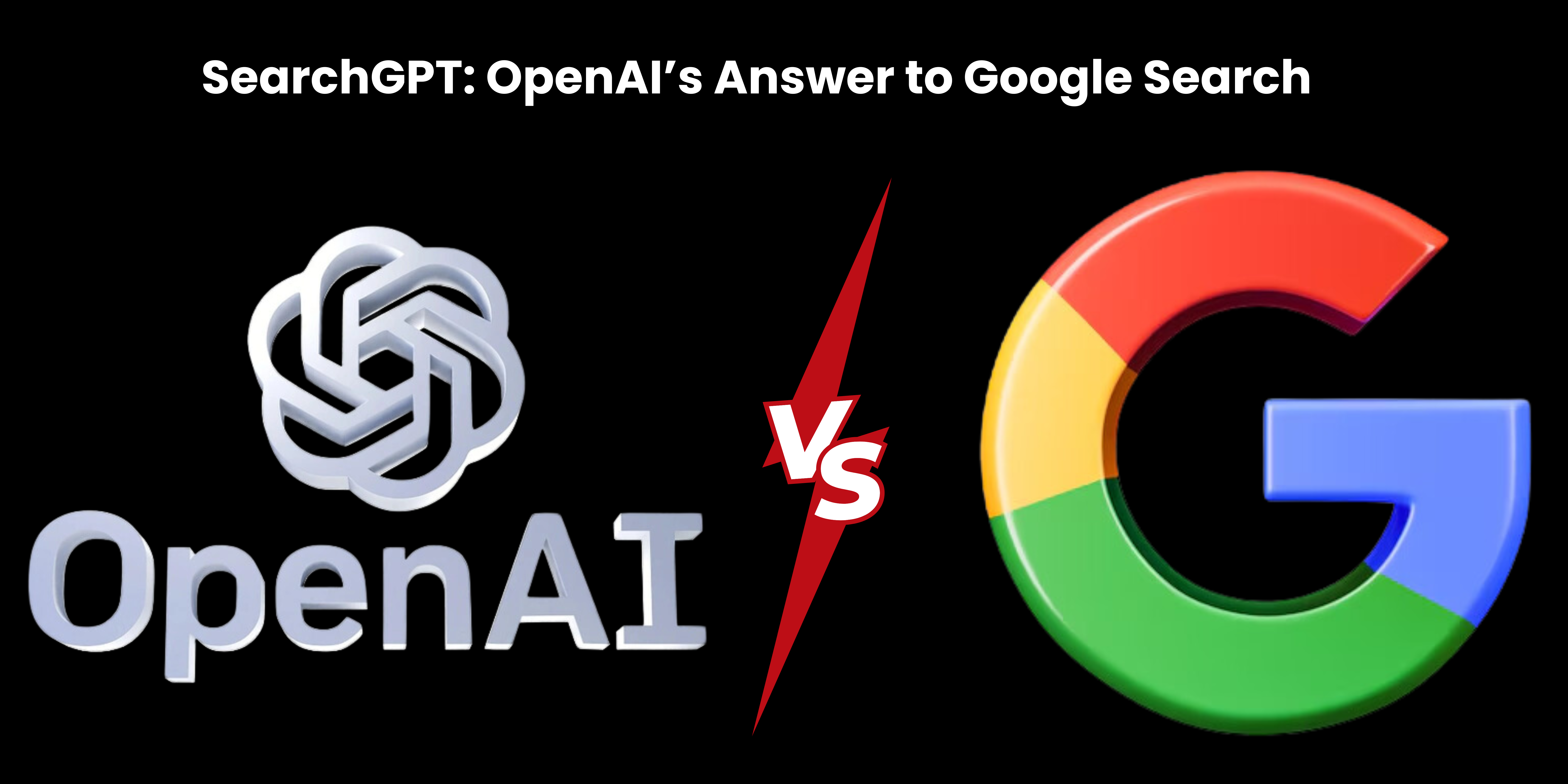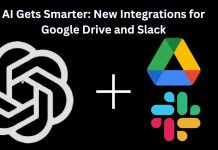Table of Contents
The Battle for Better Search Begins
The way we search for information is changing fast, and OpenAI, the company behind ChatGPT, is leading the way. OpenAI has launched SearchGPT, a new AI-powered search tool that could challenge Google, the king of search engines. With SearchGPT, OpenAI brings smarter, faster, and more conversational ways to find answers online.
But how is this tool different from Google Search? Why is it important? In this blog, we’ll explore what SearchGPT is, its features, and how it could transform how we search for information.
What is SearchGPT?
SearchGPT is an artificial intelligence-powered search tool specifically built for ChatGPT users. Instead of showing a list of links like traditional search engines, SearchGPT aims to provide direct, conversational answers to your questions.
For example:
- If you search for “What’s the best smartphone in 2024?”, Google might show you several websites.
- SearchGPT, however, will analyze the information from multiple sources and give you a summarized answer, saving time and effort.
How SearchGPT Works
SearchGPT is not just a regular search tool; it’s built on powerful AI models, combining:
- Natural Language Processing (NLP):
SearchGPT understands your questions like a human and can provide answers in a conversational tone. - Real-Time Data Access:
Unlike older versions of ChatGPT, SearchGPT can fetch the latest data, ensuring its answers are up-to-date. - Context Awareness:
It remembers the conversation flow, which allows it to provide follow-up answers. If you ask “What’s the weather today?” and then “What about tomorrow?”, SearchGPT understands you’re still discussing the weather. - Source Analysis:
SearchGPT doesn’t rely on a single source. It processes information from multiple websites, articles, and databases to create a summarized, accurate response.
How is SearchGPT Different from Google Search?
While Google Search remains the most popular tool for finding information, SearchGPT offers a fresh approach. Let’s compare the two:
| Feature | Google Search | SearchGPT |
| Search Style | Provides a list of website links | Provides direct answers in conversational form |
| Interaction | One-time search queries | Interactive, follow-up friendly |
| Real-Time Data | Yes, always updated | Yes, includes real-time updates |
| Ease of Use | Requires you to click and read multiple sites | Offers summarized answers quickly |
| Personalization | Limited to search history and preferences | Can adapt to conversational context |
In simple words, Google gives you options, while SearchGPT gives you answers.
Why is SearchGPT Important?
SearchGPT is more than just another search tool—it’s a step towards smarter and more efficient ways of finding information. Here’s why it matters:
- Saves Time:
Instead of clicking through multiple links, you get clear, summarized answers in one place. - User-Friendly for All Ages:
The conversational style makes it easy to use for anyone, including kids, students, and older adults. - Deeper Understanding:
SearchGPT doesn’t just answer your query—it explains concepts, solves problems, and helps you learn. - Updated Information:
With real-time access, you get the latest news, trends, and data without delays. - Better for Complex Questions:
If you’re asking a complicated question, SearchGPT can combine information from different sources to give a complete answer.
Who Can Use SearchGPT?
Currently, SearchGPT is available to all ChatGPT users, including free and paid versions. OpenAI’s decision to roll out this feature to everyone ensures that a larger audience can explore and benefit from AI-driven search.
How SearchGPT Can Be Used in Daily Life
SearchGPT isn’t just for searching random facts. Here are a few practical ways it can help you:
- Students and Learning:
- Answer homework questions quickly.
- Summarize long chapters or explain tough concepts.
- Get help with essays or research topics.
- Professionals:
- Find quick updates on news or trends in your industry.
- Summarize reports, documents, or articles.
- Get answers to technical questions without spending hours searching.
- Travel Planning:
- Find the best places to visit, stay, or eat.
- Compare flight options and plan itineraries with suggestions.
- Daily Tasks:
- Get recipes, weather updates, or quick DIY solutions.
- Solve tricky problems like fixing your computer or learning a new skill.
- Entertainment:
- Discover new movies, shows, books, or games based on your preferences.
Challenges and Limitations
While SearchGPT is exciting, it does have some limitations:
- Accuracy of Information:
AI tools can sometimes misunderstand questions or provide outdated or incomplete answers. - Limited Source Transparency:
Unlike Google, where you see links to sources, SearchGPT summarizes data without always showing where it came from. - Not Always Suitable for Complex Research:
For in-depth academic or scientific research, traditional search engines and verified sources may still be necessary.
The Future of Search: What’s Next?
SearchGPT marks the beginning of a new chapter in online search. With AI growing smarter, we can expect:
- Even more personalized search results based on user preferences.
- Improved accuracy and source transparency.
- Integration with tools like voice assistants, searching even faster.
- Widespread use of AI searches for businesses, education, and everyday tasks.
Google may still dominate, but tools like SearchGPT will push for innovation and better user experiences.
Conclusion: A New Way to Search
OpenAI’s launch of SearchGPT is a game-changing move that challenges how we interact with search engines. Providing direct, conversational answers makes searching for information faster, easier, and more enjoyable. While Google remains a giant, the rise of tools like SearchGPT shows that AI-powered search is the future.
As technology continues to evolve, one thing is certain: tools like SearchGPT will shape how we find, understand, and use information daily. Whether you’re a student, professional, or curious learner, SearchGPT promises a smarter and more interactive search experience. The future of search has arrived!




































